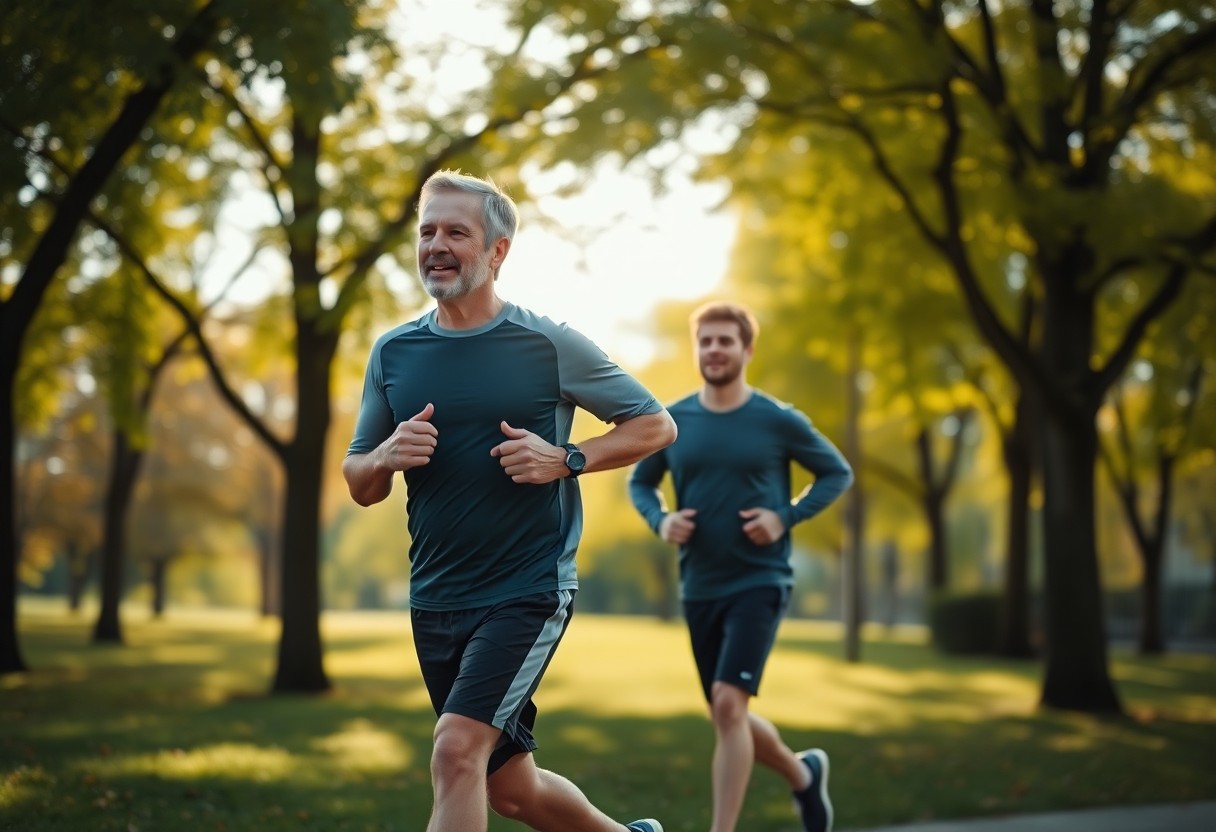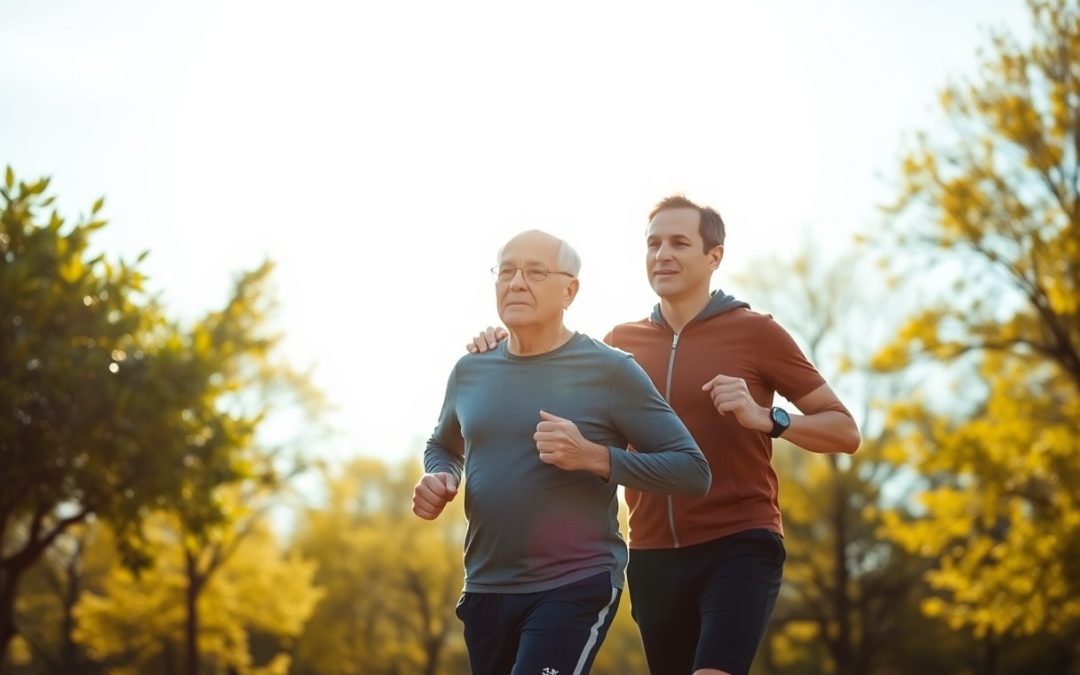Just as you focus on your recovery from prostate cancer, it’s imperative to address any erectile dysfunction or sexual health concerns that may arise. Engaging in regular exercise can be a beneficial strategy, as studies suggest it improves both cardiovascular fitness and blood flow, which are vital for sexual function. This post will explore how incorporating a structured exercise routine may enhance your sexual health and overall well-being after treatment, ultimately supporting you in your healing journey.

Impact of Prostate Cancer Treatment on Sexual Function
The impact of prostate cancer treatment on sexual function is significant and often long-lasting. Many men experience complications, particularly erectile dysfunction, after undergoing therapies such as prostatectomy or radiation. Addressing these sexual health issues is imperative for overall well-being and quality of life during recovery. You should be aware that health intervention options exist that can help in navigating this sensitive aspect of your life.
Prevalence of Erectile Dysfunction
Prostate cancer treatment has a high prevalence of erectile dysfunction (ED), with studies indicating that up to 70% of men may experience this condition post-treatment. This statistic underscores the importance of proactive management and the availability of support systems to facilitate your sexual health and maintain intimacy.
Relationship Challenges Faced by Patients
On top of the physical repercussions of prostate cancer treatment, many men face overwhelming relationship challenges due to sexual dysfunction. Open communication with your partner is imperative, as misunderstandings can lead to emotional strain and intimacy issues.
And while the prospect of facing ED can be daunting, addressing these concerns is critical. Engaging in candid discussions with your partner and seeking professional help can alleviate feelings of shame or frustration. In fact, studies show that exercise can improve sexual function, strengthening both your physical condition and your relationship. Seeking out interventions, such as counseling or tailored exercise programs, can foster a supportive environment, allowing you to rebuild intimacy and connection during recovery.
Exercise Intervention for Prostate Cancer Patients
There’s evidence suggesting that regular exercise can be a game-changer for men experiencing sexual issues post-prostate cancer treatment. Integrating an exercise intervention into your recovery plan may enhance not only your overall fitness but also your sexual health, helping you regain confidence and improve your quality of life.
Study Overview and Participant Profile
On average, participants in the study were 66 years old, comprising 112 men diagnosed with prostate cancer. They were randomized into different intervention groups aimed at improving sexual function through targeted exercise routines over six months.
Types of Exercises Included
One significant aspect of the study involved a *robust* exercise program that combined resistance and *aerobic exercises*. Specifically, you might engage in:
- Aerobic training: Involves 20-30 minutes of cardio.
- Resistance training: Involves 6-8 weightlifting exercises.
- Upper body exercises: To enhance muscular strength.
- Lower body exercises: Targeting leg and core strength.
- Individual *exercise sessions*: To meet weekly recommendations.
Thou will find that this variety in exercises helps stimulate blood flow, which is imperative for improving erectile function and overall wellbeing.
| Exercise Type | Description |
|---|---|
| Aerobic Training | 20-30 minutes of cardio at moderate to vigorous intensity. |
| Resistance Training | Utilizes weights to strengthen major muscle groups. |
| Upper Body Focus | Exercises like bench press or rows to build strength. |
| Lower Body Focus | Exercises such as squats or leg presses to enhance performance. |
| Self-Directed Training | Encouragement to meet 150 minutes of exercise weekly. |
Due to the intensity and variety of the *exercise sessions*, incorporating these routines can significantly contribute to your recovery. You’ll not only experience physical improvements but also enhanced *cardiovascular health*, which is vital for improving erectile dysfunction. Ultimately, engaging in a dedicated exercise program scientifically proves its worth and is a valuable strategy for optimizing your post-treatment recovery.
- Improved blood flow: Essential for erectile function.
- Enhanced physical fitness: Boosts your overall health.
- Muscle strength increase: Vital for mobility and energy.
- Post-operative recovery support: Aids in faster healing.
- Psychological benefits: Increases confidence and wellbeing.
Thou will likely notice substantial positive changes in your daily life through these combined efforts.

Benefits of Regular Exercise
One of the most significant benefits of regular exercise after prostate cancer treatment is its positive impact on your overall well-being. Engaging in physical activity can help improve your mood, manage stress, and enhance your energy levels. Studies have shown that men who incorporate exercise into their routine experience better recovery outcomes, which can be particularly beneficial after prostatectomy.
Impact on Cardiovascular Health
Around 69% of men with prostate cancer report experiencing erectile dysfunction, a condition closely tied to cardiovascular issues. Regular exercise enhances your cardiovascular fitness, promoting better blood circulation throughout the body. This improvement in cardiovascular health is fundamental for maintaining overall vitality and supporting sexual function.
Connection to Improved Sexual Function
Along with improving cardiovascular health, regular exercise has been linked to enhanced sexual function in men, particularly those recovering from prostate cancer. Engaging in activities like resistance training and aerobic workouts can lead to improved blood flow, which is crucial for achieving and maintaining an erection.
Further studies indicate that exercise not only boosts cardiovascular fitness but also increases systemic circulation, leading to better erectile function. As noted by experts, improved blood flow from these physical activities helps combat erectile dysfunction and can significantly enhance your quality of life. Incorporating exercise into your routine can be a transformative approach to addressing sexual health issues post-treatment, underscoring the importance of physical activity in your recovery journey.
Safety Considerations for Exercising Post-Treatment
After prostate cancer treatment, it’s necessary to consider your safety when incorporating exercise into your recovery plan. While many men are able to exercise without issue, you should start slowly and be mindful of how your body responds. Tailoring your workout to your current fitness level can help prevent injury and support your overall recovery. Keep in mind that some limitations might apply, so staying attentive to your body’s signals is key.
Recommendations for Patients
Considerations for engaging in exercise include focusing on low-impact activities that you enjoy and can sustain over time. It’s often recommended to aim for at least 150 minutes of moderate-intensity exercise per week, incorporating both aerobic and resistance training. Listen to your body, and prioritize exercises that enhance your strength and flexibility, all while ensuring that you can maintain a safe and enjoyable routine.
Importance of Medical Consultation
On the topic of exercise, consulting with your medical professional is necessary. They can provide tailored advice based on your specific situation and health status. Additionally, your doctor can help identify any restrictions or precautions you may need to take after treatment.
Further, having a thorough discussion with your doctor enables you to address any physical limitations you might face during recovery. Ignoring medical advice can lead to serious issues, including injury. By working together, you can develop a safe exercise strategy that aligns with your overall health goals and maximizes your potential for recovery. Ensure your activities enhance your well-being while mitigating risks associated with post-treatment exercise.
Previous Research Supporting Exercise Benefits
For men undergoing treatment for prostate cancer, numerous studies have demonstrated the positive impact of regular exercise on sexual function. Research indicates that tailored exercise programs, focusing on both aerobic and resistance training, can significantly enhance sexual health while promoting overall physical fitness. These findings emphasize the importance of integrating exercise into your treatment plan for optimal recovery and improved quality of life.
Yoga and Sexual Function
Previous studies have shown that yoga can effectively improve sexual function in men with prostate cancer. This holistic approach not only fosters physical flexibility and strength but also promotes mindfulness, reducing anxiety related to sexual performance. Combining yoga with a structured exercise routine could be a key strategy for enhancing your sexual well-being post-treatment.
General Exercise Benefits for Older Men
Exercise has been demonstrated to provide significant benefits for older men, particularly regarding sexual health and erectile function. Engaging in regular physical activity can enhance cardiovascular fitness and improve systemic circulation, resulting in better erectile function. Evidence indicates that aerobic exercise, performed at moderate to vigorous intensity, is especially effective. A study revealed that men diagnosed with prostate cancer who exercised three times a week showed improved sexual function and overall quality of life. Including both aerobic and resistance training in your routine may ultimately help maximize your recovery following prostate cancer treatment.
Yoga, in particular, can be a valuable component of your exercise regimen. It can enhance physical capabilities while also addressing emotional and mental well-being. The combination of physical postures, breathing techniques, and meditation can significantly alleviate stress and anxiety, which can be detrimental to sexual performance. Ultimately, by incorporating a variety of exercises like yoga into your lifestyle, you can achieve better overall health while enhancing your sexual function following prostate cancer treatment.
Future Directions for Patient Support
All prostate cancer survivors should have access to comprehensive support systems that address the multifaceted effects of treatment, including sexual dysfunction. This entails providing tailored programs that incorporate exercise and other interventions designed to enhance your overall health, well-being, and intimate relationships. Future initiatives should also aim to facilitate open discussions about sexual function and encourage healthcare providers to prioritize these conversations with their patients.
Integrating Exercise into Treatment Plans
Exercise is gaining recognition as an important element in your prostate cancer treatment plan. Engaging in regular physical activity, such as aerobic and resistance training, can significantly improve your sexual function post-treatment. By incorporating structured workout routines into your rehabilitation, you can enhance blood flow, boost your cardiovascular health, and mitigate the effects of erectile dysfunction.
Increasing Awareness of Sexual Health Issues
For many men, sexual health issues can be a significant but often overlooked concern after prostate cancer treatment. Public education initiatives are vital for raising awareness about the potential for erectile dysfunction, as studies indicate that most survivors may not receive adequate support to tackle this issue effectively.
Future efforts should focus on creating awareness campaigns that emphasize the importance of discussing sexual health openly with healthcare providers. This is particularly vital since many men aren’t informed about the prevalence of •erectile dysfunction post-treatment; around 63% of prostate cancer patients experience this condition. By promoting dialogue, you can be empowered to take action, seek interventions like exercise programs, and improve your quality of life after cancer treatment. Ultimately, informed patients are more likely to pursue effective treatments and receive necessary support for these intimate challenges.
To wrap up
Ultimately, addressing sexual function issues after prostate cancer treatment is vital for your overall well-being. Engaging in regular exercise can significantly improve your erectile function and enhance your cardiovascular health, which plays a key role in sexual performance. Always consult with your doctor before starting any new exercise regimen to ensure it aligns with your individual recovery plan. Prioritizing your physical activity can help you regain confidence and satisfaction in your intimate life, making it an important part of your journey to better health.
FAQ
Q: What is erectile dysfunction (ED) and how does it relate to prostate cancer treatment?
A: Erectile dysfunction (ED) is the inability to achieve or maintain an erection sufficient for satisfactory sexual performance. After prostate cancer treatment, many men experience ED as a result of the treatment processes, which can affect the nerves and blood vessels responsible for erections. Addressing these issues through health interventions and regular exercise can significantly improve sexual function and overall quality of life for these patients.
Q: How does regular exercise impact sexual function in men after prostate cancer treatment?
A: Regular exercise, particularly a combination of resistance training and aerobic activities, can enhance cardiovascular health, which is closely linked to improved sexual function. Studies have shown that men who engage in regular physical activity may experience better blood flow, contributing to improved erectile function. The incorporation of exercise into the recovery process can therefore be a key strategy for men wanting to regain sexual health post-treatment.
Q: Are there any specific exercise recommendations for men recovering from prostate cancer treatment?
A: Men recovering from prostate cancer treatment are generally encouraged to engage in an exercise regimen that includes both aerobic activities and resistance training. This typically involves working out three times a week, with sessions including 20 to 30 minutes of moderate to vigorous cardio, and various weightlifting exercises targeting major muscle groups. However, it’s vital for individuals to consult with their doctor before starting any exercise program to ensure it is safe and tailored to their specific recovery needs.


